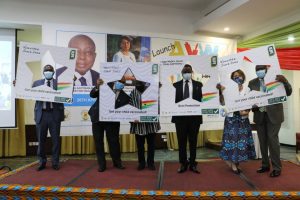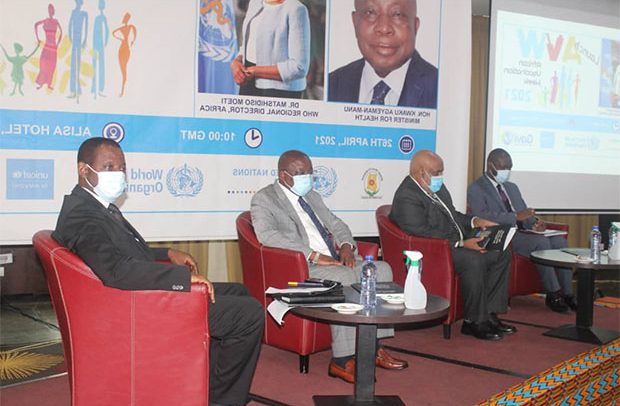The World Health Organization, (WHO) has called on African countries to support the vaccination process in order to reduce vaccine preventable diseases to its barest minimum.
The WHO said Africa has made substantial progress towards childhood morbidity and mortality reduction with the help of vaccines which prevents between two to three million children form dying annually worldwide.
But the international health agency noted that the gains must be sustained in order to close the immunization gap.
It indicated that vaccine preventable diseases have not vanished and may reoccur if efforts at immunizing all eligible children at the right time slacken.
“To ensure routine immunization reaches every child, there are health system challenges that need to be addressed. These include inadequate infrastructure, transport and power supply for refrigerators, limited numbers of frontline health workers, as well as stockouts of vaccines and other essentials, like syringes,” said Dr. Matshidiso Moeti, regional Director for WHO AFRO.

Dr. Moeti made the call at the launch of the 11th annual African Vaccination Week (AVW), in Accra on the theme, ‘Vaccines Bring Us Together’.
The Week seeks to increase community awareness about immunization and strengthen linkages between Expanded Program on Immunization (EPI) and other child survival interventions.
Dr. Moeti indicated that the emergence of COVID-19 cases and the discovery of vaccines bring a new dimension in Vaccine Preventable Diseases while buttressing the fact that Africa and the global community can only win the fight against vaccine preventable diseases through strengthening immunization services, advocacy, education and outreach activities.
“Communities should be engaged to improve health literacy and increase demand for vaccines, with special attention on reaching the poorest and most marginalized groups,” she said.
Ghana’s Story
Minister of Health, Kwaku Agyeman-Manu, said disease eradication is possible with universal immunization.
He stated that the country over the years have recorded notable immunization achievements including reaching over 90 per cent coverage for almost all routine vaccines in the country.
“The proportion of fully immunised children has improved from 47% in 1988 to 77% as of last demographic and health survey in 2014. There has been no documented childhood death due to measles in the past 15 years (since 2003) and Ghana is in elimination mode for measles control; There is near elimination of Yellow fever epidemics in Ghana,” he said.
Mr Agyeman-Manu further noted that Ghana has been free from wild polio virus since 2009 with the country achieving Maternal and Neonatal Tetanus elimination status in 2011, following an assessment by WHO and UNICEF and is maintaining the elimination status.
He said preventive care was on top on government’s health agenda adding that one key strategy is to further increase the coverage of immunization and its related services to up to 100 per cent.
“The President has set up a committee to look at local production of vaccines. We aim to be able to build this capacity not just for COVID-19 but for other vaccines as well,’ he said.
By Jamila Akweley Okertchiri

